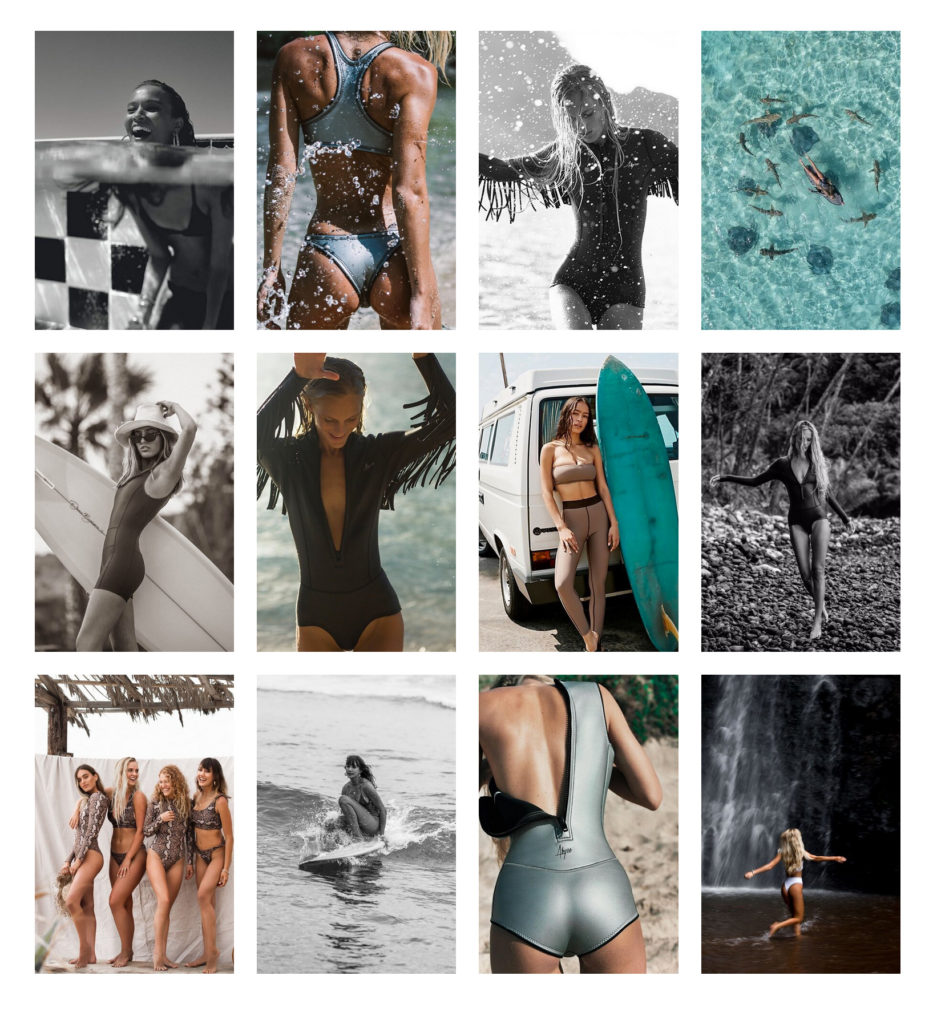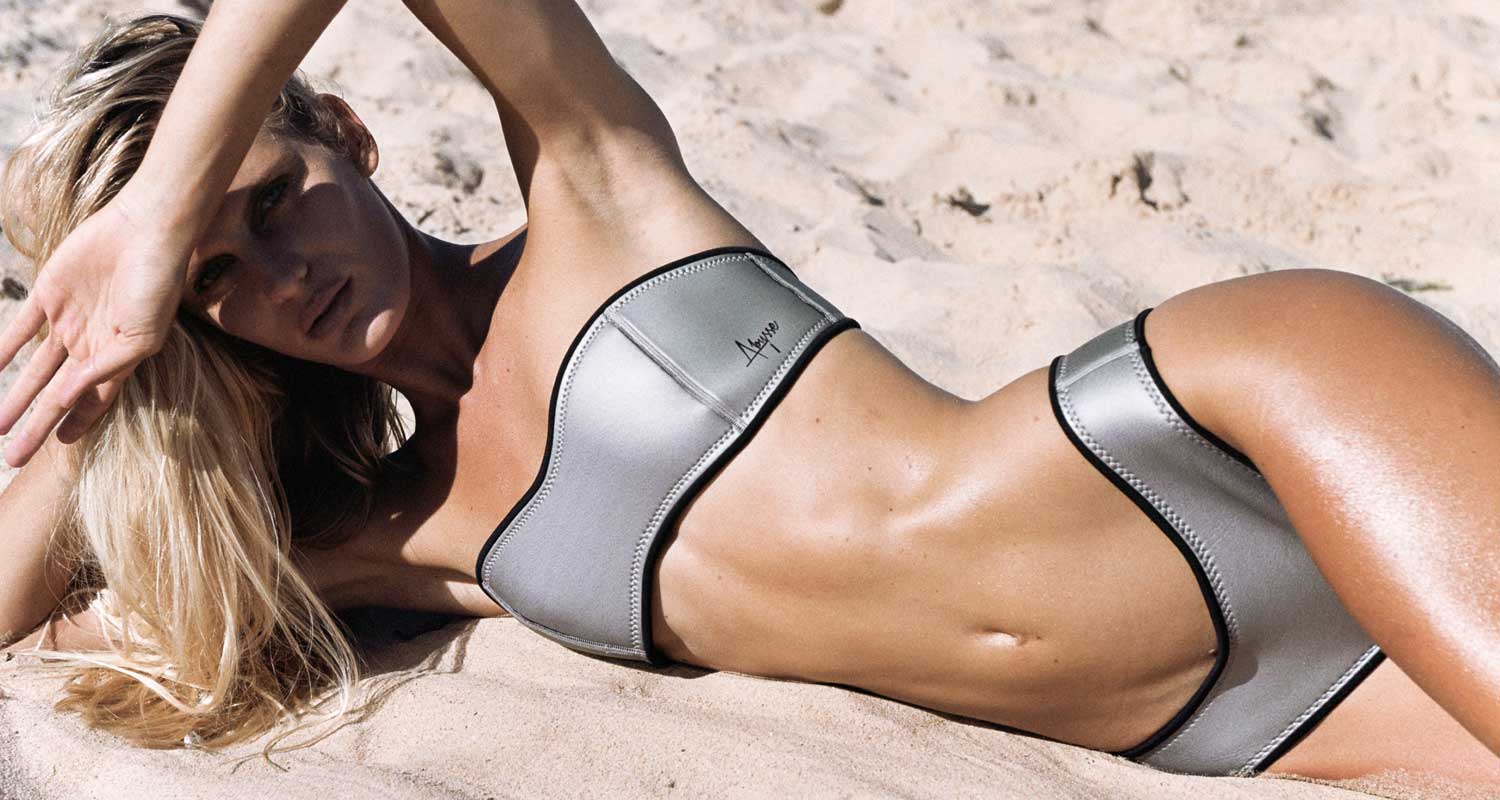Your cart is currently empty!
Abysse
Sustainable swimwear since day one. Learn from one of the first brands to ever do it eco-friendly.
Interview & Photos: Séréna Lutton

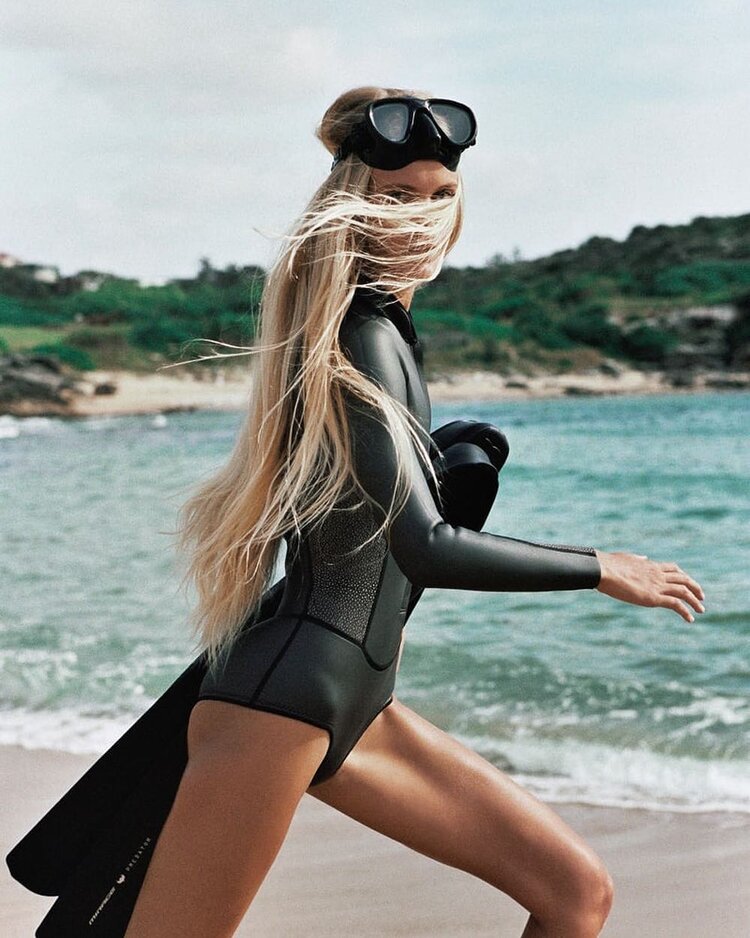
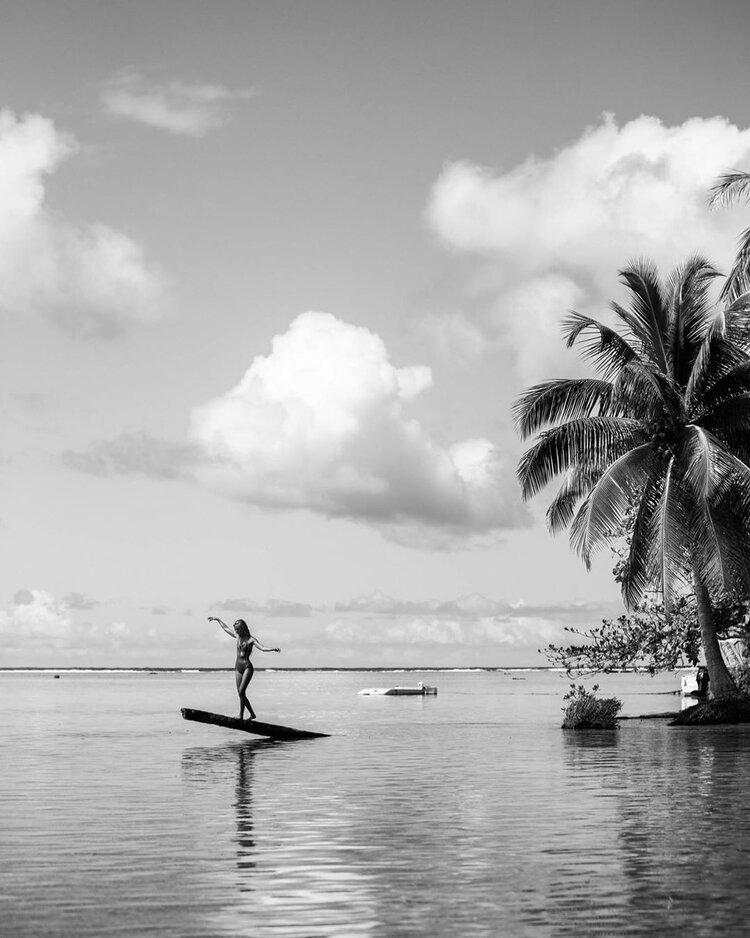
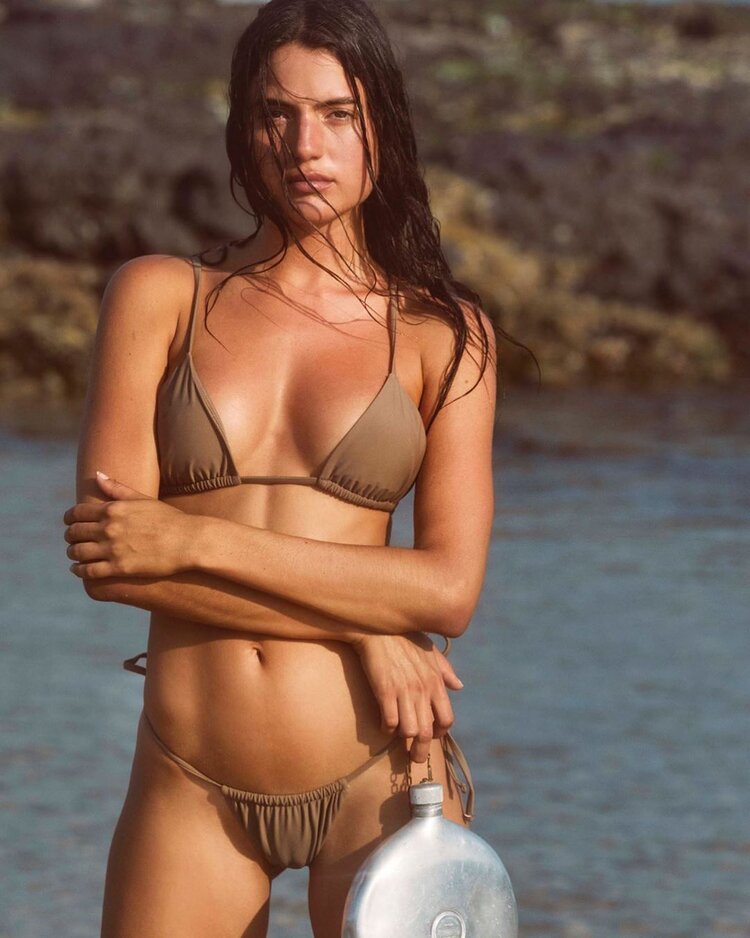

Can you give us a backstory on how the brand was born?
Abysse was born out of a desire and dream to create a brand whose main purpose was to align women with ideals of function and sustainable fashion. Growing up in Tahiti shaped my vision of the world. Nature is omnipresent. After becoming a surfer, a model and traveling the four corners of the world throughout my teenage years, I yearned to create something of substance. This shaped my dream to create a line that reflected these values: produce less and produce well. Protecting our environment has been a cause close to my heart since I can remember, and turning that passion into creating Abysse has been a magnificent journey through celebrating and creating for women that love the ocean as much as I do.
_
How is the brand currently sustainable?
At Abysse, we make a conscious choice to make a difference. Being a conscious manufacturer means to take back power and support what we stand for. We define ourselves as a sustainable brand by embodying these aspects: by being a small family business, women owned, locally produced, using recycled materials from the beginning to the end of our value chain (from packaging to production) and by supporting charities that we believe in. By achieving the above, we aim to create an impact and set our own long term trend.

“Long lasting fashion is the key. At Abysse, we make a conscious choice to make a difference. Being a conscious manufacturer means to take back power and support what we stand for.”

What do you think of fast fashion versus long-lasting fashion?
Long lasting fashion is the key. Instilling and educating young generations that well made garments are meant to be bought and worn for years, mended and then recycled is also a a key part of this cycle. It is really easy to get caught up in a vicious circle of trends and fast fashion, but believing and supporting brands that do make a difference is so much more rewarding. Fashion is the most polluting industry. Awareness and understanding that slow fashion works, and believing that buying less but more quality is empowering.
_
Did your personal convictions affect your desire to build a sustainable brand? Or vice versa?
Absolutely. It was the main drive behind building and creating a brand that was not defined by the standard fast fashion pyramidal system. Since creating Abysse, it has pushed me to grow and learn, dive even deeper in actions that I believe in. It has become a symbiotic relationship were both the brand and my personal life function in a great parallel always pushing the other.
_
How many collections do you work with per year?
We work with one main collection a year for both our neoprene and swimwear | activewear line, which we combine with a small fall capsule. We are aiming to also launch an ‘Apres-Surf’ collection made out of up-cycled fabric.

“I love that people are getting more curious and demanding more transparency. All of our swimwear and activewear line are made locally here in California which feels amazing.”

“Who made my clothes?” seems to be a central question in this fashion revolution. What are the questions you’re asking yourself before launching a new collection?
I love that people are getting more curious and demanding more transparency. All of our swimwear and activewear line are made locally here in California which feels amazing. Taking the steps to consider who is behind the garment, what kind of recycled materials is the piece made out of or how the fabric got there in the first place are all taken in consideration. I also always ask myself, who will love this piece? It is really important to know what styles are timeless versus trend oriented. Not over producing is a key to well being of a small business like us.
_
What are some of the difficult sustainable choices that you had to make?
I think the main difficulty with sustainability is cost. Our industry is still geared heavily towards producing with cheap labor and fabrics which inherently attracts a low cost. Producing a product in the USA, made out of recycled premium fabrics is expensive, and you have to be willing to cut some of your own margin to maintain your DNA. You also have to strongly believe that customers are on the same wave length.
Technology is another challenge, as we are only limited to fabrics that are ‘green’, but the world is evolving and changing so fast, and more and more amazing materials such as hemp or Yulex for example are slowly getting more accessible, affordable and the norm.
_
What give back program or community involvement is the brand most excited about?
Helping charities has always been very close to our heart. We launched the brand in partnership with ‘Sirens for the sea’ an amazing Australian organization led by females scientists, which main goal is to educate and provide resources and well as scientific research and background to a lot of different causes such as plastic pollution, rising warm waters, etc. We are also very proud to be supporting ‘Moorea Coral Gardeners’ a team started by two brothers that are very close family friends of ours in my native French Polynesia. Their goal and main aim is to regenerate the coral reef around the vast islands of Tahiti. They have been doing amazing work replanting coral as well as educating the local population and kids about the importance of the coral reefs in our islands.
_
Where does the brand derive its design inspiration?
The design inspiration for Abysse always comes from the search of a timeless design. Looking back at fashion archives has always been a thrill. The goal is to always create a garment that is fashionable but functional above else. My goal is to fill a niche in the gap of the market, where women need technical designs to perform in the ocean as well as a timeless fashionable design that will empower them in and out of the water.
_
Has the brand always been sustainable? If no, tell us about the transition.
100% YES.
_
What kind of challenges did you encounter while creating the brand?
The main challenge was to find the right production factory, for both our neoprene and swimwear line.
Our main struggle has been to find factories that want to produce wetsuits and that also were able to scale the demand. Our production was based in the USA for the first 3 years but unfortunately our manufacturer shut down. It is a dying art and no one in the USA is wanting to manufacture surf wetsuits. Exporting our production internationally was hard, especially morally. We have now found an amazing sustainable factory in Taiwan, and we feel very lucky that it all worked out.
_
What did you learn from these challenges and what would you do differently from today’s perspective?
The main learning experience was to not be so stubborn on one particular aspect of the value chain. I wanted everything to be produced locally so badly, but it just was not working. It took me a long time to come to terms with the fact that we can still be very sustainable by making all the right choices, even if our neoprene collection is not made in the USA. It equals itself. Fo example, we now have have less freight for our fabrics, which is a lower CO2 and gas emission for the planet. Everything is a balancing act.
_
How do you go about attracting new customers who aren’t necessarily seeking out eco-friendly items?
I believe that our aesthetic does attract some customers who aren’t necessarily buying the product because of how it’s made but because of how it looks. We are trying to break down the concept that an eco-friendly item cannot be fashionable or as performant.
_
Does the brand have any collaborations or upcoming campaigns you’re excited about?
I am very excited for our Spring Summer 2020 collection as we will be introducing a new recycled swim fabric to our range. I am also very excited to extend our neoprene capsule to Yulex material as well as winter based neoprene such as Long Johns and Full suits. Lastly, our ‘Apres-Surf’ capsule is going to be first into a realm of clothing wear. Excited to see if our customers love it as much as I do!

“The key element is to know your DNA and sticking to it, making sure it is reflected in your value chain from A to Z.”

According to you, what are the key elements to make long-lasting fashion?
The key element is to know your DNA and sticking to it, making sure it is reflected in your value chain from A to Z. Making pieces that will last a long time implies great quality of manufacturing and fabric, as well as making the right decision for your company. Follow your gut.
_
From a business point of view, does investing in quality over quantity doable?
I do believe so. It is definitely not easy but quality always prevails in anything we do. From fabrics to people, you cannot put a price on quality. I believe that a lot fo people are on the same wave length, and choosing quality of quantity. It is a movement that is starting, and I believe that educating the youngest generation is key to king this the staple of living.
_
How has social media changed things for the brand in general?
Social media has changed the world in so many ways, especially for brands such as Abysse. It has eclipsed any other form of marketing and has given us a platform to express ourselves, our opinions and thoughts. It has made the process transparent and I believe it also makes us closer to our customers.
_
What are your long-term plans for the brand?
To grow slowly and steadily. To keep making the right choices. To expand and refine. To work and collaborate with our idols and heroes. To keep reaching our goals. To inspire and be inspired. To keep educating younger generations. To support more amazing women throughout their journeys.
_
Where do you see the company in 4 years from now?
Hopefully making a mark on our industry and leading the way towards more sustainable manufacturing for both wetsuits and swimwear, while empowering women along the way.
_
Pay us a visit of your workplace, what does it look like?
Our workplace is situated behind my other business, a retail space with an ethical mind called ‘Motu’. The goal of this amazing space is to integrate unique sustainable lifestyle brands with the mix of surf culture. San Clemente is a rad little surfer’s town on the coast of Southern California that has developed into a community full of artists, surfers, and consumers with an ethical and sustainable mind.
My hopes in creating this store, is to fulfill the need for a location that will celebrate unique curated goods from brands with a similar conscious ethos.

